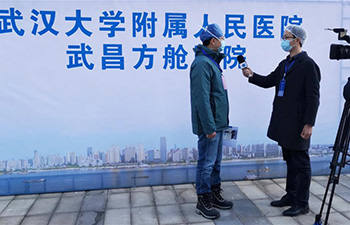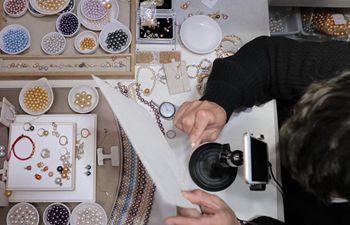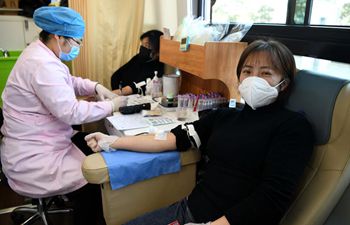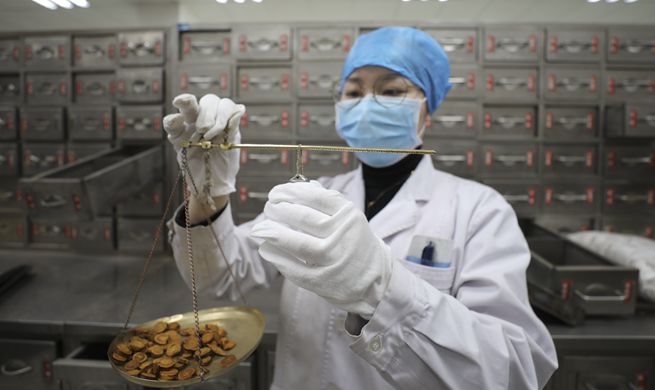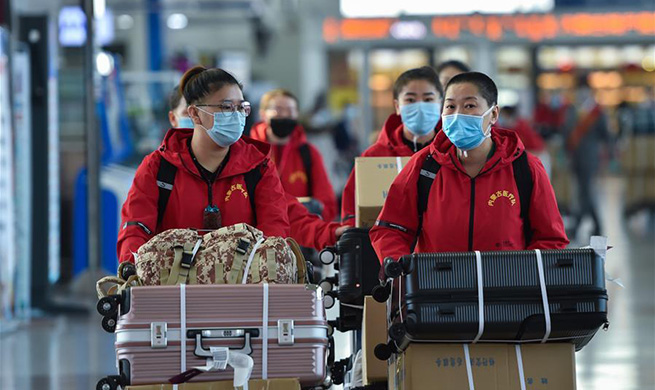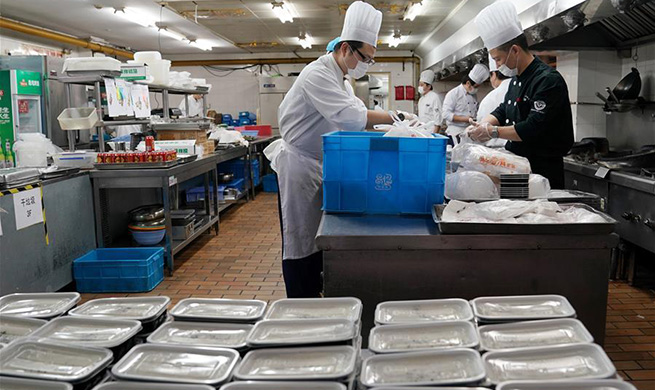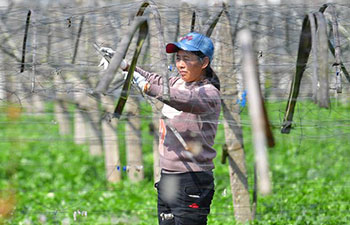NAKURU, Kenya, Feb. 19 (Xinhua) -- People living with disabilities in Kenya find it hard to secure formal employment despite being skilled and ready to work, realities pushing them to compete for available opportunities in self-employment.
Winfred Wanjiku, aged 26, was born with cerebral palsy, finished her two-year tourism and travel course in 2014, hoping for a job in a corporate travel company but with little success.
According to Wanjiku, her applications were received with disdain.
"I would be asked 'what kind of job would you do? "said Wanjiku.
"They did not value my skills. They did not realize I am capable of delivering," she added.
Wanjiku later gave up a job seeking to venture into hawking of jewelry at a small town in central Kenya until mid-2018, when she decided to convert her passion for music into an income-generating activity since the micro-business was bringing in little returns. She opted for a disk jockey (DJ) job.
Wanjiku enrolled at a Nairobi training institute where she learned the grip of mixing songs to the excitement of revelers.
Since her graduation in October 2018, she has been very busy.
Unlike other DJs, Wanjiku uses her feet to operate the deck and laptop, the equipment she received as a donation from veteran DJs.
"In a month, I get at least three gigs and I cannot complain about the pay. I know I am growing and soon I will have more gigs and become an experienced DJ," said Wanjiku.
So far, she has performed in corporate events in major cities across the country and is encouraged by people's feedback.
"They (people) tell me that I am an encouragement to others and that I should continue doing my work well," said Wanjiku.
She markets herself through social media, conferences where individuals exhibit talents as well as through friends. Fellow DJs also market her through referrals.
"I encourage any other person with any kind of disability not to look down upon themselves but use their talents to earn an income and live a good life," said Wanjiku.
Josephine Kakoma, a deaf woman and founder of Kenya National Deaf Women Peace Network, failed to secure a secretarial job despite spending three years in college, equipping herself with the necessary skills.
"I was happy to graduate in 1993 and I was so eager to get a job but everywhere I went potential employers would turn me away," said Kakoma through a sign language interpreter.
"They wondered how a deaf person would be a secretary. I would feel very bad but I decided to accept my condition as a deaf person and motivated myself to find something meaningful to do with my life," she added.
Now with her organization through which she fundraises to advocate the rights of deaf persons in Kenya, Kakoma is happy with her standard of living.
"I have managed to educate my two children who give me great satisfaction. They are all grown-ups and they are taking care of me," said Kakoma.
Her organization reaches out to other deaf women and girls through community outreach activities, public forums and visits to special schools.
Grace Jerry, a disability rights advocate, said that disabled persons in Africa continue to face stigma and discrimination in all spheres of life.
She said the society must be aware that persons with disabilities are functioning human beings who should be treated as equals.
"Governments in every part of Africa must ensure that rights of persons with disabilities are protected, that they have access to basic services and income-generating opportunities," said Jerry.

